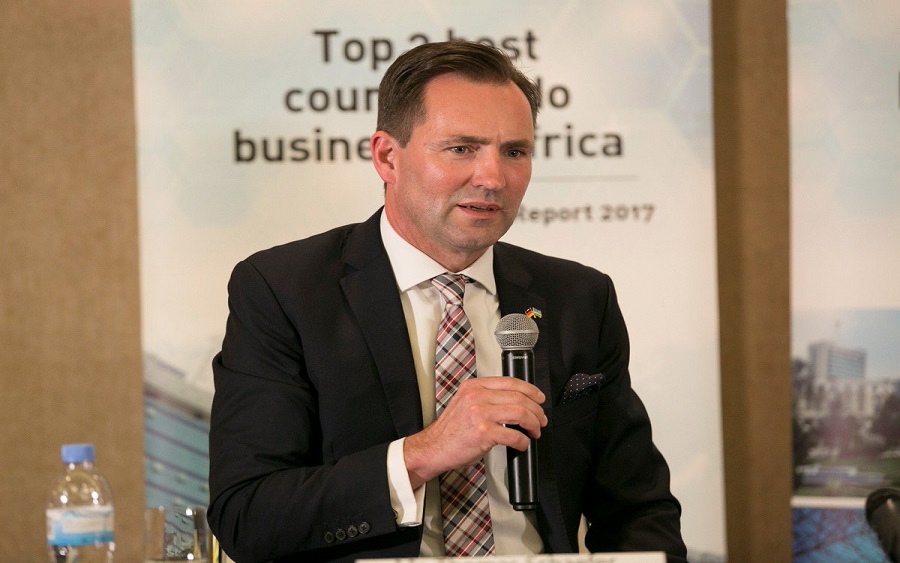The automotive industry in Nigeria may be the beneficiary of a new joint development agreement between Volkswagen and German-based Siemens company.
The project, which is said to be an electric mobility feasibility project for Africa, was announced by the Chief Executive Officer (CEO) of Volkswagen Group South Africa, Thomas Schäfer.
Electric cars are relatively new in Africa, so this joint agreement is set to make it popular by introducing Volkswagen electric cars. The first stop for this is Kigali, Rwanda. According to Schafer, four e-Golfs and one charging station would be launched during the pilot phase of the project.

What you should know: Schafer made known that Siemens would provide the charging infrastructure for the electric cars. He also spoke on why Rwanda is the first go-to country for the launch of the electric car.
“With the launch of the pilot project, Rwanda becomes the first African country to introduce a Volkswagen electric car, Rwanda has a young and progressive population that appreciates individual and modern mobility. Together with our development partner Siemens and with the support from the government of Rwanda, Volkswagen wants to make the e-Golf pilot project in Rwanda a blueprint for electric mobility in Africa,” he said.
[READ MORE: Royal Exchange announces acquisition deal]
Speaking on the partnership, the CEO of Siemens Southern and Eastern Africa, Sabine Dall’Omo, said the partnership with Volkswagen on the project solidified Siemens’ commitment not only to Rwanda but to other African countries.
Expansion plans: Volkswagen said that although it had significantly expanded its engagement in Africa with the establishment of the assembly facilities and marketing activities in Nigeria, Kenya and Rwanda, it had more countries to take on as Ghana and Ethiopia had been planned as the next locations.
What you should know: Electric cars are automobiles powered by rechargeable batteries charged with electricity and not dependent on diesel. It was first produced in the 1880s but the acceptance was low then before gaining prominence due to environmental issues like climate change and pollution.















I am a self confessed fanatic of electric cars or Evs. I have been closely following trends in EV development and the greatest obstacle to the introduction of EVs in Nigeria is the almost non-existent power generating infrastructure and the the seize mentality of the oil canals in Nigeria. In spite all of this it gives me a sense of hope that my refusal to replace my Volkswagen golf mk2 with another money wasting petrol vehicle and fast and pray for the e- golf to come to Nigeria may not be in vain. I hope in future I and other Nigerian will possess the knowledge and skills to send all these environmentally and pocket unfriendly petrol/diesel engine to the scrap yard and replace them with at least 800 horse power electric motors.
Sorry it is cabal and not canal. Autocorrect can be a nuisance